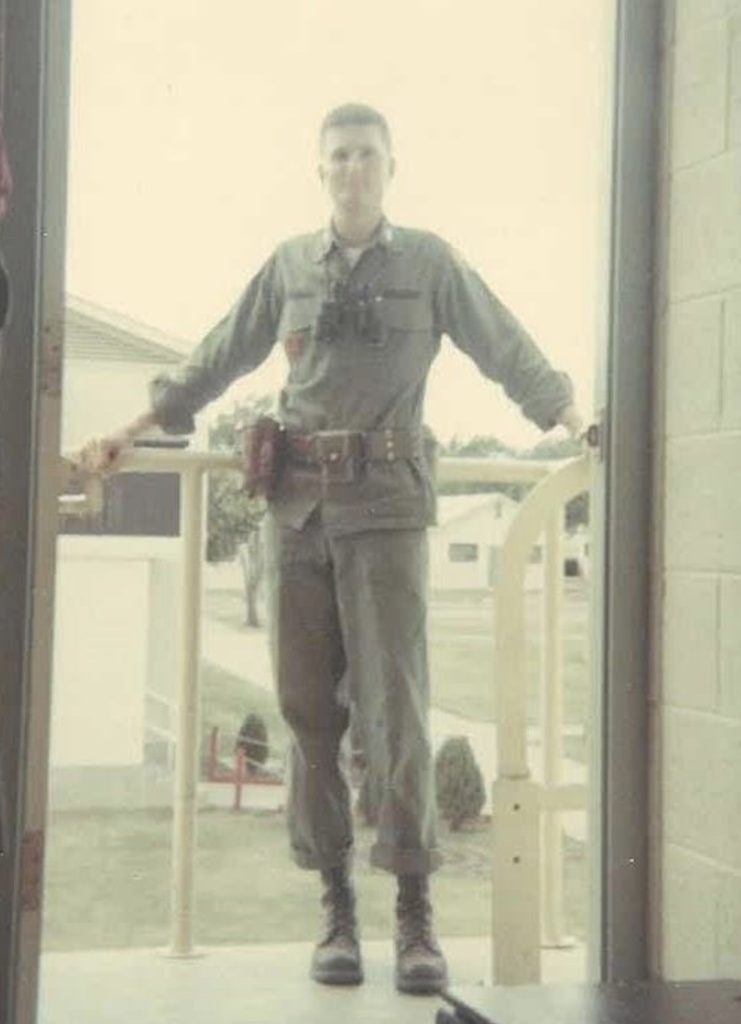Andrew Brannan: the Execution of a Decorated Veteran with Serious Mental Illness
Andrew Howard Brannan was raised in a family with a proud history of military service. One of three boys who would all serve, he volunteered for the U.S. Army in 1968. He served in Vietnam, enduring horrific violence in extended combat. Mr. Brannan was an Army Artillery Forward Observer – a position described by fellow veteran Ray Chastain as having “the shortest life expectancy of any category of soldier in Vietnam.” Lt. Brannan earned a Bronze Star and two medals of commendation for his service.

Mr. Brannan returned from Vietnam in 1971 but remained haunted by the violence of war. He attempted to integrate into civilian life, but quickly manifested signs of serious mental illness. Mr. Brannan sought refuge in nature, spending months at a time hiking the entirety of the Appalachian and Pacific Crests trails multiple times alone, and retreating to a bunker without electricity or running water that he built himself in rural Dexter, Georgia. By 1991, after decades of struggling with deteriorating mental health, and the traumas of his older brother’s death while on active duty and his younger brother’s suicide, the Veteran’s Administration deemed Mr. Brannan to be 100% disabled due to combat-related PTSD, as well as Bipolar Disorder and Depression.
In the throes of his mental illness, on January 12, 1998, Mr. Brannan shot 22-year-old Sheriff’s Deputy Kyle Dinkheller in a traffic stop for speeding as the sun was setting on a rural stretch of Whipple Crossing Road in Laurens County. Mr. Brannan had no criminal record or history of violence before this crime.

Though he was a decorated veteran, his trial lawyers did not ask a single soldier to testify on his behalf at his sentencing proceeding in favor of a life without parole sentence. The jury also never heard from the VA psychiatrists who were willing to testify on his behalf about the debilitating nature of his diagnosis, and how Mr. Brannan posed no future danger to society and could adapt successfully to life in prison. Without the benefit of this information, the jury sentenced Mr. Brannan to death.
In post-conviction proceedings, working with pro bono partner King & Spalding, the Resource Center uncovered the depth and breadth of Mr. Brannan’s mental illness and the bizarre and atypical nature of the crime. They learned that in the week leading up to the crime, Mr. Brannan had been stymied in his efforts to refill his psychotropic medication at the VA pharmacy, and consequently, had not taken it regularly for at least five days prior to shooting Deputy Dinkheller. On the night of the crime, Mr. Brannan was leaving his parents’ house in Stockbridge, GA, to take refuge at his bunker. When he was pulled over, Mr. Brannan, unmedicated, became agitated, verbally hostile, and spiraled into a PTSD-induced dissociative episode. He shouted for Deputy Dinkheller to shoot him and danced on the side of the road. Eventually, Deputy Dinkheller did fire his weapon and Mr. Brannan became more aggressive. He rushed the officer with an M-1 carbine he had retrieved from his truck and fatally shot him.
In his final appeal to the Board of Pardons and Paroles, Mr. Brannan’s lead attorney Joe Loveland of King & Spalding framed the question this way: Is it right to execute a veteran whose sole incidence of violent behavior is traceable directly and inexorably to mental illness resulting from his combat service? In support of his clemency petition before the Board, fellow Vietnam veteran Harold Nash, then Chairman of Georgia’s Veterans Treatment Court Task Force, explained that “a straight line goes directly from Mr. Brannan’s Vietnam experience to the episode in January 1998.” Numerous other veterans urged the Board to grant clemency and to give consideration to the ceaseless “gruesome and notoriously bloody” combat experience Mr. Brannan endured in service to our country. Despite this powerful evidence for mercy, the Board denied clemency. The State of Georgia executed Mr. Brannan on January 15, 2015. His attorney said in a statement: “Andrew Brannan responded to learning that his case had touched many veterans and helped raise public awareness of the impact of PTSD on veterans by saying, ‘I am proud to have been able to walk point for my comrades, and pray that the same thing does not happen to any of them.’”
